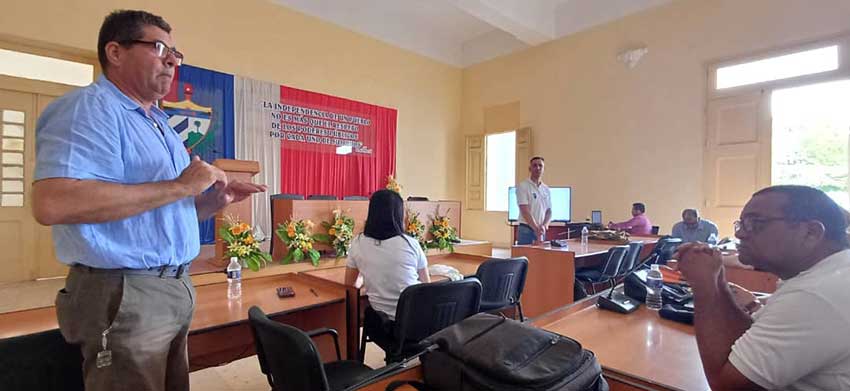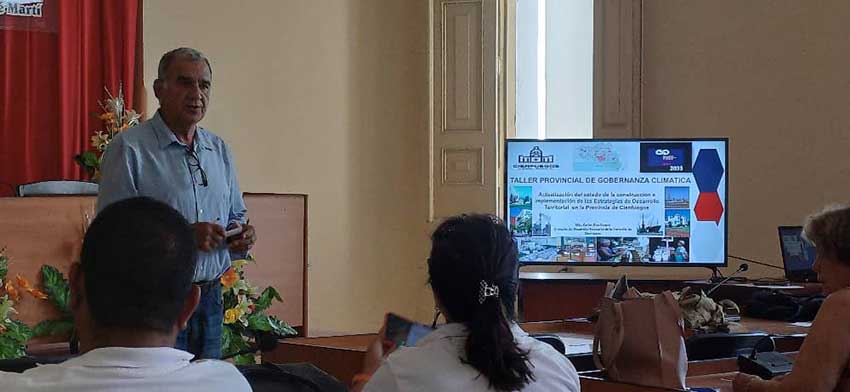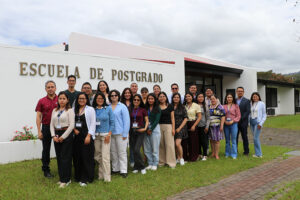Workshop promotes climate governance and development strategies in Cienfuegos

- The CIENPINOS project strengthens local capacities in Cuba to face climate change through territorial planning
More than 60 key actors from the province of Cienfuegos participated in the Municipal Governance Scaling Workshop, promoted by the project Municipal Climate Governance and Sustainable Agroforestry Food Production with Low Emissions Adapted to Climate Change in Cienfuegos and Pinar del Río, Cuba (CIENPINOS). This initiative is implemented by CATIE (Tropical Agricultural Research and Higher Education Center) with financial support from the Swedish Cooperation.
The objective of the workshop was to strengthen the incorporation of climate criteria into territorial planning and to update the Territorial Development Strategies (TDS) with a more resilient and sustainable vision.
The meeting, held in the Provincial Government's conference room, was attended by representatives of local governments, specialists from the Ministry of Science, Technology and Environment (CITMA), the Provincial Meteorological Center, the Environmental Studies Center (CEA), academics from the University of Cienfuegos Carlos Rafael Rodríguez, and directors of Municipal University Centers (MUC).

The opening of the workshop was led by Jesús Rey Novoa, Director of Territorial Development of the Provincial Government, who emphasized the importance of integrating the climate approach into municipal development. Subsequently, Tania Sánchez Santana, National Director of CIENPINOS, presented the project's progress, aimed at promoting more resilient territories through concrete adaptation and mitigation actions.
She also presented the results of participatory studies carried out on family farms raising creole goats in the municipalities of Cumanayagua and Abreus, where the productive and environmental impacts of climate change in the territories are analyzed. These investigations provide valuable inputs for improving municipal and provincial development strategies.
One of the central moments was the update on the status of the TDS of Cienfuegos, presented by Carlos Díaz Ramos. The specialist emphasized that the new strategy seeks to integrate climate change as a transversal axis, promoting a more participatory government management based on scientific and community knowledge.
In turn, Roberto García Dueñas, responsible for the Climate Governance component of CIENPINOS, shared the lessons learned in the municipalities of Abreus and Cumanayagua. “The identification of environmental problems and the design of adaptation pathways arise from the daily experience of producers, communities, and local sectors, and are fundamental to building more effective public policies,” he noted.
At the end of the meeting, the contribution of the CIENPINOS project in building local capacities and effectively incorporating climate governance into public management was recognized. Rey Novoa highlighted that the results of this work will strengthen the TDS of Cienfuegos, contributing to the resilience of rural and urban communities in the face of current environmental challenges.
More information:
Ismael Hernández Venereo
International coordinator
CIENPINOS Project
CATIE
ismael.hernandez@catie.ac.cr
Written by:
Karla Salazar Leiva
Communicator
Communications and Marketing Office
CATIE
karla.salazar@catie.ac.cr



